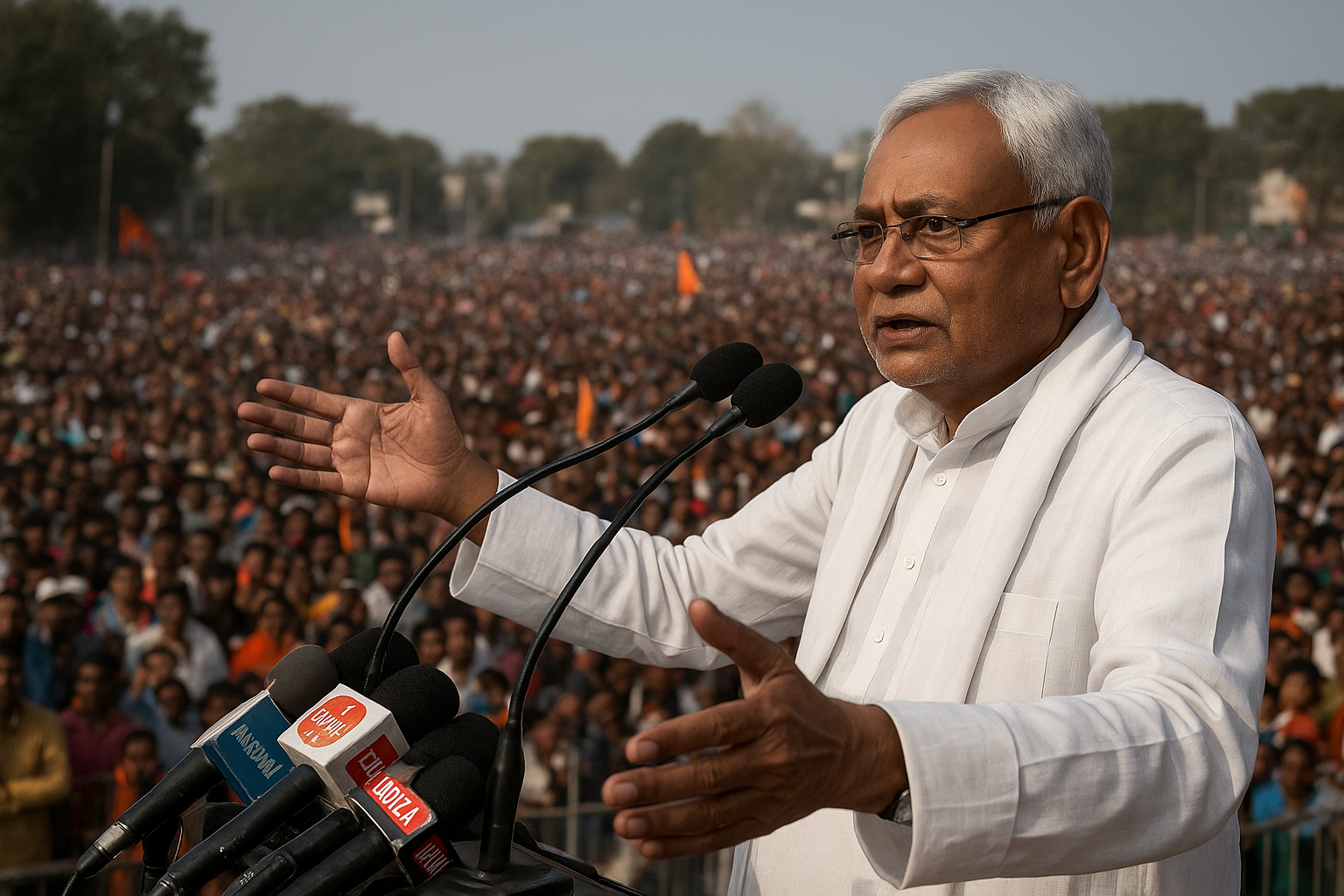A Unique Political Approach in Bihar
Bihar’s political landscape has always been vibrant and complex. However, Nitish Kumar stands out as a leader with a distinct approach. Known for his welfare-driven policies, he has earned the reputation of being Bihar’s “Santa Claus.” His recent actions and strategies show how he continues to play a key role in shaping the state’s politics.
The Context Behind Nitish Kumar’s Popularity
Nitish Kumar, the Chief Minister of Bihar, has been in the political arena for decades. His governance style emphasizes development combined with populist welfare schemes. His focus on improving infrastructure, education, and public welfare programs has helped him connect deeply with the masses, especially the economically weaker sections of society.
Key Moves That Define His Role
Recently, Nitish Kumar’s political strategy has again caught attention as he continues to distribute welfare schemes and incentives. These actions not only aim to improve public life but also help strengthen his political position.
- Welfare Schemes Galore: From free bicycles for students to financial aid for women, his government focuses on providing direct benefits to citizens.
- Election Strategy: Ahead of upcoming elections, these welfare measures help in consolidating his support base.
- Inclusive Growth Focus: His efforts reflect a balanced mix of infrastructure development and social welfare.
What Experts Are Saying
Political analysts say Nitish Kumar’s approach is a calculated mix of development and welfare politics. An expert in Indian politics explained, “Nitish Kumar has always combined governance with strategic populism. His welfare schemes create goodwill among the voters, helping him remain relevant in Bihar’s dynamic political arena.”
Why It Matters
This strategy holds significant importance not only for Bihar but for Indian politics at large. Nitish Kumar’s approach demonstrates how welfare politics can influence voter behavior in large states like Bihar. His continuous focus on social welfare over mere rhetoric helps build trust among the people.
Moreover, these efforts show a trend where regional leaders are moving towards welfare-centric politics to sustain their leadership. This model may inspire other states in India to adopt similar strategies, especially where socio-economic challenges are pronounced.
What’s Next for Nitish Kumar?
As Bihar approaches its next assembly elections, Nitish Kumar’s government is expected to further expand welfare schemes. Observers predict that his focus will remain on strengthening grassroots connections and delivering tangible benefits to the people. The political narrative will likely center around development, poverty alleviation, and inclusive progress.
Conclusion
Nitish Kumar’s role as Bihar’s political Santa Claus highlights his unique strategy of combining governance with welfare-driven populism. His efforts to provide direct benefits to the public reflect a pragmatic and people-centric approach to politics. As Bihar gears up for future elections, it will be interesting to see how this strategy plays out in shaping the state’s political future.



